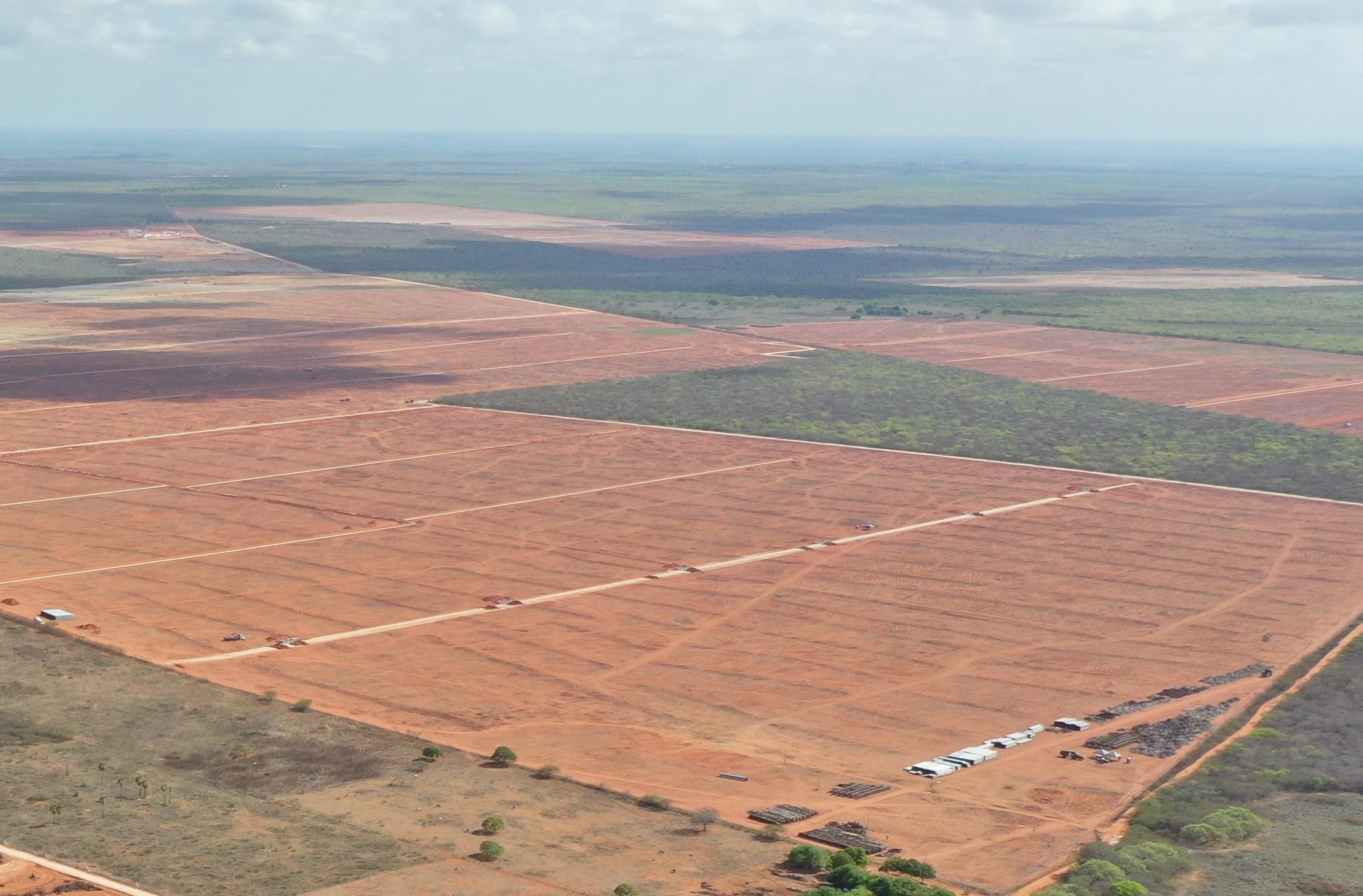
Brazil has been a clean energy leader for more than 50 years. More than 84% of their electrical grid is powered by renewable energy, stemming mostly from hydroelectric resources. Because of this, Brazil has earned the status as the third largest hydropower producer in the world.
With a rapidly changing climate, Brazil’s electricity supply has become more vulnerable, as flooding, droughts and heavy rains can impact hydropower output, according to WEF. To stave off a potential power crisis and maintain its status as a global renewables leader, Brazil’s government has set energy policies to trigger the development of more wind and solar power.
Brazil is betting big on wind power production
Brazil reported 32.6 gigawatt (GW) of installed wind and solar capacity as of 2023. Wind currently accounts for more than 13% of the country’s electricity, per government reports – with most of the installed capacity coming from the breezy Northeast region. Solar power is also growing quickly in Brazil, surpassing 7GW of total installed capacity, and together with distributed generation ending at 26 GW. According to Mordor Intelligence, Brazil will be home to an expected 1.2 million solar power generation systems by 2024.
This is where Scatec has a role to play. As a renewable energy frontrunner in emerging economies, Scatec currently has two solar projects in Brazil. The company’s Apodi solar project, a venture with Equinor, was connected to the grid in 2018. It produces 346 GWh per year and powers the equivalent of 170,000 households.
Scatec’s latest solar project in Brazil: Mendubim
Scatec announced in July 2022 that it had commenced construction activities with partners for the 531-megawatt (MW) Mendubim solar project in the state of Rio Grande do Norte. The project is being realised in partnership with Equinor and Hydro Rein and will help to power the equivalent of some 620,000 households in Brazil. As part of this partnership, the companies have signed a 20-year USD-denominated power purchase agreement (PPA) with world-leading alumina supplier Alunorte for approximately 60 per cent of the expected power produced. The remaining volume will be sold in the Brazilian free power market.

In photo; Alexandre Franceschi–Head Business Development – Equinor,
Deborah Canongia and Axel Holmberg – Business Development Director and Country manager Brazil – Scatec, and Marcela Jacob – Country Manager Brazil – Hydro REIN.
During 2023, the Mendubim project construction activities have progressed well. The main civil works activities such drainage, foundations, levelling, and roads are close to completion. During January the piling activities were initiated, and in March the first sub-structures are being installed. The works at the substation and transmission line are advancing as planned and the team is working on the foundation of the towers at the transmission line path. More than 700 contractors and Scatec employees are involved in the work on site. To partly finance the construction activities, the Mendubim project has also made its first drawdown on the project finance debt, provided by IDB Invest, part of the Inter-American Development Bank Group, Banco Santander, and BNP Paribas.
Environmental and social management in focus at Mendubim
When Scatec takes on projects, such as Mendubim, it does so with environmental and social management top of mind. The company goes beyond policies and procedures by working to ensure that all sustainability commitments are realised on-site. These commitments were put to the test upon a recent visit from the investment lender’s own environmental and social representative, who was on-site at Mendubim to assess our plans and give their approval of our efforts, which were well-received.
One of our key environmental efforts was how we approached the flora and fauna surrounding the site. Recovery of the local nature was a critical part of our environmental management work. For example, we removed as many as 70 beehives and collected 1,839 grams of seeds from 74 different plants, which will be sent to a seed bank.
Our environmental and social efforts also extend to the workforce. We are a strong backer of gender balance, and this is a belief that extends to every project in which we partake. At Mendubim, we are currently training 240 local women to become solar panel assemblers. These women are receiving training on photovoltaic systems, which gives them a solid foundation for a future career in Brazil’s growing renewables industry highlighting our commitment towards local development.
